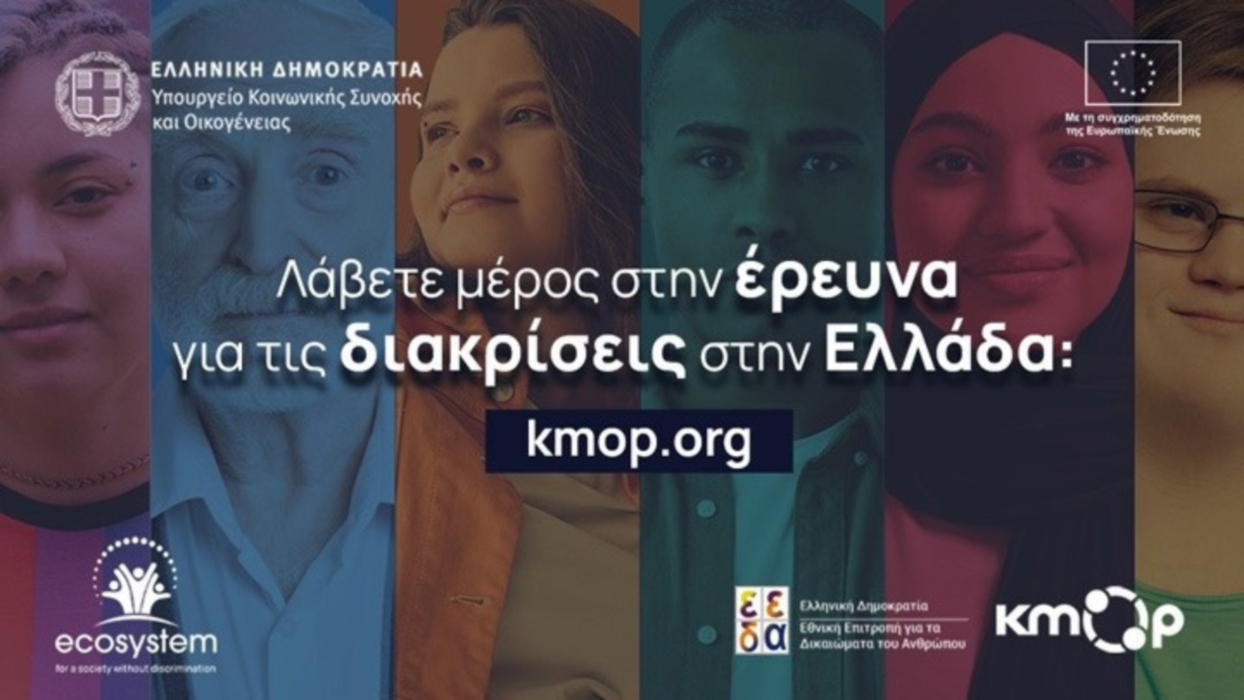Eighty-five percent of people responding to a survey on stereotypes in Greek society reported experiencing various forms of discrimination, chiefly in relation to gender, age and their family or social status. Of these, one in two admits to unconsciously discriminating against others. The survey was coordinated by the Centre for Social Action and Innovation and conducted on a sample of 1,928 adults, between January and May 2025, using an anonymous questionnaire.
Based on its findings, nine in 10 respondents consider that stereotypes are very or extremely widespread in Greek society, while more than nine in 10 consider that they affect people’s behaviour toward specific social groups. The most widespread forms of discrimination were reported to be those that concern sexual orientation, gender expression, social status, gender, gender identity, race and national or ethnic origin. The most oftened mentioned environments where discrimination takes place were those related to job seeking, the workplace, the internet, the search for housing and police stations.
Nearly half (48%) admit to unconscious discrimination, 8% report deliberate discrimination, while 15% claim that they have never experienced discrimination.
The forms of discrimination most often personally experienced by respondents were reported to be those relating to gender (33%), age (25%) and family or social status (20%), while the workplace (34%) and public spaces (24%) were the areas where such incidents most often occurred. Women were more often subjected to various forms of discrimination than men, as were residents of large cities in comparison with smaller towns.
The survey also revealed that only 20% reported incidents of discrimination and most did so unofficially, to family or friends. Of those that took formal action, most reported the incident to their employer (20%), the police (11%), a lawyer (6%), justice (4%), a trade union (4%), the Ombudsman (3%) and the Labour Inspectorate (2%). Those who did not report the incident gave reasons such as fear, lack of trust and protection, the culprit’s social or professional position, shame, lack or support and others. Many also said that the incident “was not important enough” to report.
Source: pagenews.gr
